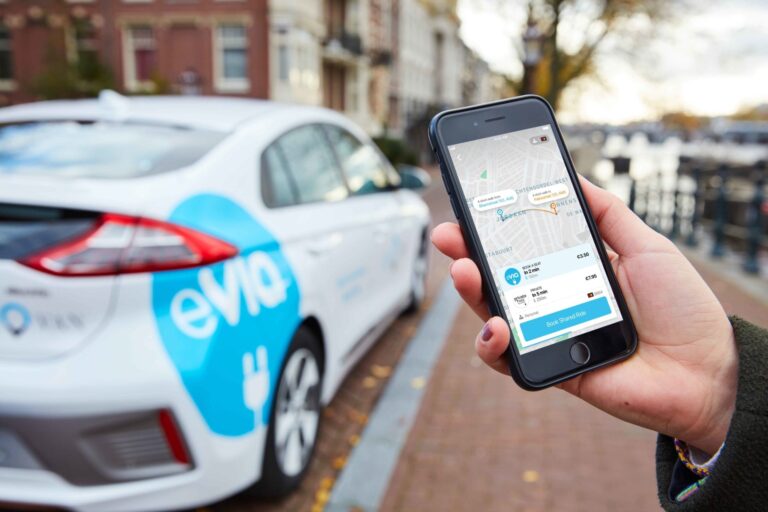Public mobility provider ViaVan and Shell are launching an electric mobility project in Amsterdam to demonstrate the viability of deploying shared, electric vehicle fleets in urban environments.
The programme will integrate ViaVan’s on-demand technology and operations, Shell Recharge technology, and charging station infrastructure into one system.
Through this, ViaVan and Shell aim to demonstrate that high-capacity electric fleets can improve performance when routing to available chargers is intelligently optimised.
ViaVan has developed technology that enables electric vehicles to operate efficiently as part of large-scale fleets delivering shared rides. Described as an ‘EV Operating System’, it includes an EV routing algorithm designed to maximise the range and battery utilisation of EVs.
In Amsterdam, the system will monitor the real-time battery status of all vehicles in the fleet, calculate upcoming charging tasks and intelligently route vehicles to a Shell charging station. Passengers can book an electric shared ride through an ‘eVia’ request on the ViaVan mobile app.
According to both companies, use of an ‘EV Operating System’ could hold significant potential for municipalities to gain further control of grid usage across the Dutch capital city, both through better planning and more efficient on-demand use of its charging assets.
Amsterdam was selected as the initial market for the project due in part to its commitment to achieving zero-emission transport by 2025. The city also serves as the home to both ViaVan’s first shared ride service in Europe and Shell’s Technology Centre in Amsterdam.
Chris Snyder, ViaVan CEO, said: “The successful integration of electric vehicles into fleets of on-demand shared shuttles is a complex operational challenge that requires smart EV technology.
“We are excited to partner with Shell to demonstrate that when technology interacts with infrastructure, we have the ability to bring innovative, congestion-reducing and sustainable solutions to cities that have the potential to evolve public transportation towards a greener, shared future.”





